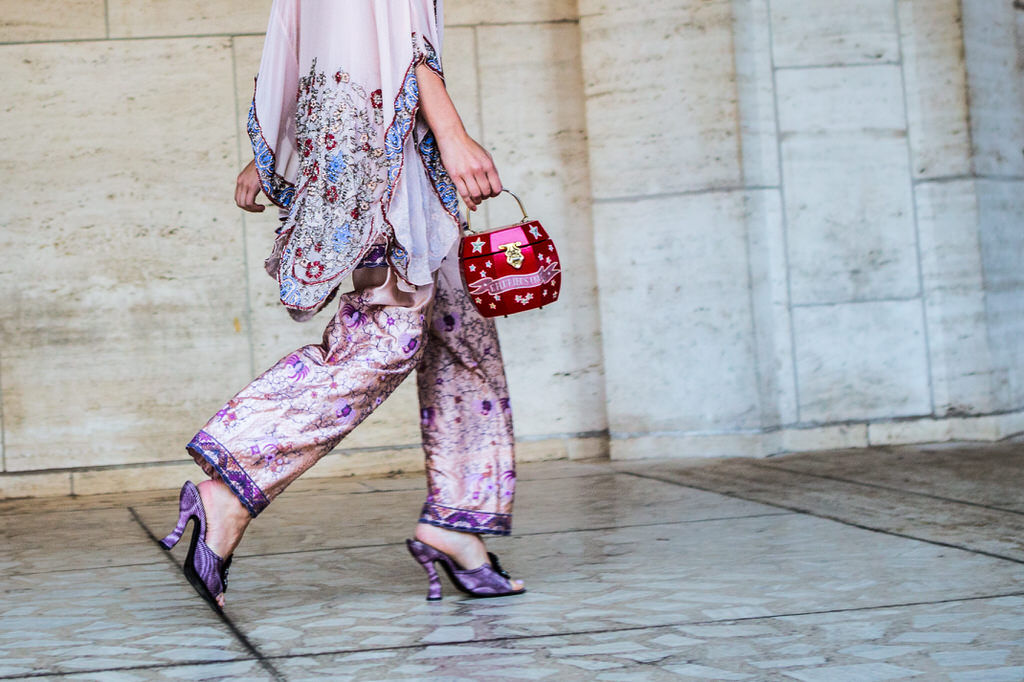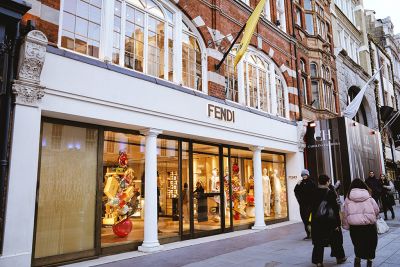L'articolo descrive l'alta moda italiana e l'importanza nella storia italiana, in particolare di Fendi. Il marchio Fendi è sinonimo di lusso, eleganza e atemporalità. Il marchio Fendi prende il nome da Adele ed Edoardo Fendi che fondarono l'azienda nel 1925. Fendi è nota per una varietà di vestiti, borse e gioielli. Una delle borse più famose è la Baguette Bag, che è stata lanciata nel 1997. Questa borsa è ancora una delle borse più acquistate. Un'altra borsa è la Peekaboo Bag, che è stata lanciata nel 2008. Questa borsa è ancora famosa per il suo design elegante. Ci sono molti attori, artisti e persone famose che indossano Fendi. Quindi, Fendi è un marchio ben fatto e noto.
Italy has long been synonymous with luxury, style, and craftsmanship, making it a powerhouse in the global fashion industry. From the cobbled streets of Milan to the rolling hills of Tuscany, the country is home to some of the most iconic fashion brands in history. These labels not only reflect Italian artistry but also define elegance and innovation on a global scale.
Italy’s fashion brands are more than just labels; they represent a way of life steeped in artistry, tradition, and innovation. From Milan’s runways to Hollywood’s red carpets, these brands have shaped global fashion and inspired generations.
Whether it’s a Gucci bag, a Prada dress, or a pair of Ferragamo shoes, each piece tells a story of Italian excellence, ensuring that the country remains at the heart of the fashion world for years to come.
Here’s a closer look at some of the most celebrated fashion brands founded in Italy, each with a unique story and lasting legacy.
Fendi:
The Legacy of Italian Luxury and Innovation
Fendi is a name synonymous with luxury, craftsmanship, and timeless elegance. Since its founding in 1925, the Italian fashion house has redefined the world of high fashion, blending tradition with innovation. From its iconic fur and leather creations to its groundbreaking collaborations and modern designs, Fendi remains a global leader in the luxury fashion industry.
Fendi was founded in Rome in 1925 by Adele and Edoardo Fendi as a small fur and leather goods boutique. The brand quickly gained a reputation for exceptional craftsmanship and quality, attracting an elite clientele. Over the years, Fendi expanded its offerings, becoming a symbol of Italian luxury.
The real transformation of Fendi began in 1965 when Karl Lagerfeld joined the house as creative director. Lagerfeld, known for his visionary approach, revolutionized Fendi’s fur designs, making them lighter, more versatile, and fashion-forward. He also introduced the now-famous “FF” (Fun Fur) logo, which became an enduring emblem of the brand.
Throughout the decades, Fendi has maintained its dedication to innovation while respecting its heritage. Under the leadership of the Fendi family, the brand expanded beyond fur and leather goods, introducing ready-to-wear collections in 1977 and later moving into footwear, accessories, and fragrances.
A significant milestone in Fendi’s history was its acquisition by LVMH (Louis Vuitton Moët Hennessy) in 2001, which solidified its position as a global luxury powerhouse. Despite this transition, Fendi has remained true to its Roman roots, even restoring and supporting historic landmarks such as the Trevi Fountain through its "Fendi for Fountains" initiative.
Fendi is known for several iconic pieces that have left a lasting impact on fashion. The Baguette Bag (1997) was designed by Silvia Venturini Fendi, the Baguette bag became a cultural phenomenon, often credited as one of the first "It" bags. Its sleek, compact shape and variety of designs made it a must-have for fashion lovers worldwide.
The Peekaboo Bag (2008) is another standout creation and a symbol of elegance and versatility, featuring a structured yet playful design.
Fendi has continuously pushed the boundaries of fur craftsmanship, blending tradition with modern techniques, despite shifting consumer attitudes toward ethical fashion.
Fendi has also collaborated with numerous artists and designers, including Nicki Minaj, Jackson Wang, and Kim Jones, who was appointed as the artistic director for womenswear in 2020. These collaborations have brought fresh perspectives to the brand while maintaining its luxurious essence.
Today, Fendi remains a powerhouse in the fashion industry, seamlessly blending innovation with its signature heritage. The brand embraces sustainability and craftsmanship, ensuring that its designs remain both forward-thinking and rooted in its rich history.
From the runways of Milan to the streets of global fashion capitals, Fendi continues to captivate audiences with its impeccable designs, proving that true luxury is timeless.
Fendi’s journey from a small Roman boutique to a global fashion empire is a testament to its dedication to quality, creativity, and reinvention. With a legacy built on innovation, craftsmanship, and iconic style, Fendi remains a beacon of Italian luxury, continuously shaping the future of fashion while honoring its past.





